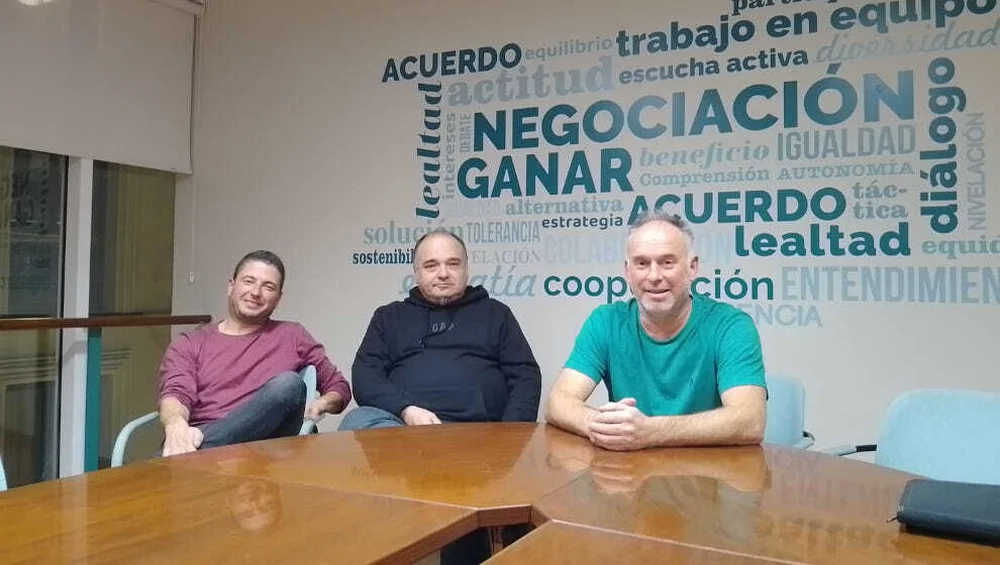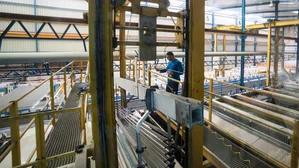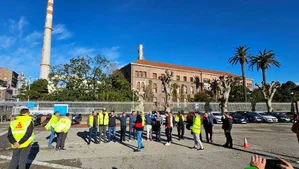Labor Dispute at Solvay Logistics Committee in Spain Escalates

In a significant development in labor relations in Spain, a dispute at the Solvay logistics committee has taken a dramatic turn, highlighting the tensions between workers and management at the chemical giant.
Background and Context
Solvay, a multinational chemical company, has been facing labor unrest at its logistics operations in Spain. The company, known for its diverse range of chemical products, has been a major employer in the region. However, recent negotiations between the logistics committee and the management have hit a roadblock.
The Incident
On January 30, 2025, the logistics committee of Solvay found itself in a contentious situation when the company's management prevented the Orecla (Oficina de Resolución de Conflictos Laborales), a labor mediation body, from attending a crucial meeting. This move was seen as a provocative step by the workers, who were seeking mediation to resolve ongoing disputes.
Details of the Dispute
The dispute centers around various labor-related issues, including working conditions, wages, and job security. The logistics committee, representing the workers, has been pushing for better terms and conditions, while the management has been resistant to these demands. The prevention of Orecla from attending the meeting has further strained the already tense relations between the two parties.
Location and Impact
The incident occurred at Solvay's logistics facility, which is a critical part of the company's operations in Spain. The facility is located in an area with significant industrial activity, and any disruption here can have broader implications for the local economy and employment.
Reactions and Next Steps
The workers and their representatives have expressed strong dissatisfaction with the company's actions, viewing them as an attempt to undermine the mediation process. The Orecla's role in resolving labor conflicts is crucial, and its exclusion from the meeting has raised concerns about the company's commitment to fair labor practices.
As the situation continues to unfold, both parties are likely to engage in further negotiations, with the possibility of escalating the dispute if a resolution is not reached. The labor unions and worker representatives are expected to press for the inclusion of Orecla in future meetings to ensure a fair and mediated resolution to the ongoing issues.
Broader Implications
This incident is part of a larger landscape of labor disputes in Spain, where workers are increasingly seeking better working conditions and greater protections. The Solvay dispute highlights the challenges faced by workers in the chemical industry, an sector known for its complex labor dynamics and significant health and environmental concerns.
For expats living in Spain, this dispute serves as a reminder of the ongoing labor issues in the country and the importance of robust labor laws and mediation processes in resolving conflicts between workers and management.
Related Stories

Over 2,600 Aspirants Participate in Initial Public Employment Exams for 2023-2024 in Suffolk and Monroe Counties
Over 2,600 candidates vie for public sector roles in Suffolk and Monroe counties, marking a keen interest in civil service careers for 2023-2024.

Cantabria Leads in Creation of Indefinite Employment Positions Following Labor Reform
Cantabria leads Spain in creating stable jobs post-labor reform, setting a positive precedent for national employment stability and growth.

New Mediation Called in Solvay Logistics Strike in Spain
In a bid to resolve the ongoing strike at Solvay's Spanish logistics division, Orecla announces a new mediation session, aiming to reconcile worker demands with company operations.

Significant Changes in Labor Laws and Housing Regulations in Spain: What Expats Need to Know
Spain introduces major labor and housing law reforms, impacting expats with changes to temporary contracts, eviction procedures, and climate-related labor measures.

Spain Set to Implement Shorter Work Week Starting 2025
Spain to reduce its work week to 37.5 hours by 2025, aiming to improve work-life balance for 12 million employees, following an agreement led by Labour Minister Yolanda Díaz.